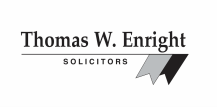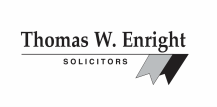The Rebuilding Ireland Home Loan Scheme
The government has just launched another initiative to help people – who, up to now, had been excluded from the housing market – purchase their first home.
The scheme, called the Rebuilding Ireland Home Loan, is due to commence on 1 February 2018 and is aimed at first time buyers with annual salaries of less than €50,000 for a single applicant or less than €75,000 for joint applicants.
The main benefits of the scheme will be, firstly, the relatively cheap lending rates – starting at 2% over 25 years – and, secondly, the fact that it will offer potential buyers a way around the Central Bank’s income multiple rule which limits mortgage borrowings to 3.5 times the borrower(s)' salary.
The scheme will apply to first time buyers of new and second-hand (and self-build) homes.
Applicants will be able to borrow up to 90% of the purchase price up to a maximum purchase price of €320,000 in Dublin, Cork, Galway, Kildare, Louth, Meath and Wicklow, and €250,000 in the rest of the country. The effect of this is that the maximum loan (90% of the purchase price) will be €288,000 in the seven above mentioned counties and €225,000 everywhere else.
The loan term will extend over a maximum term of 30 years.
The scheme, called the Rebuilding Ireland Home Loan, is due to commence on 1 February 2018 and is aimed at first time buyers with annual salaries of less than €50,000 for a single applicant or less than €75,000 for joint applicants.
The main benefits of the scheme will be, firstly, the relatively cheap lending rates – starting at 2% over 25 years – and, secondly, the fact that it will offer potential buyers a way around the Central Bank’s income multiple rule which limits mortgage borrowings to 3.5 times the borrower(s)' salary.
The scheme will apply to first time buyers of new and second-hand (and self-build) homes.
Applicants will be able to borrow up to 90% of the purchase price up to a maximum purchase price of €320,000 in Dublin, Cork, Galway, Kildare, Louth, Meath and Wicklow, and €250,000 in the rest of the country. The effect of this is that the maximum loan (90% of the purchase price) will be €288,000 in the seven above mentioned counties and €225,000 everywhere else.
The loan term will extend over a maximum term of 30 years.
The Basic Terms and Conditions
- The scheme applies only to first time buyers. In other words, an applicant cannot be the current owner of a property. There may be some exceptions to this rule, for example, in the case of legally separated or divorced applicants, although this is not explicitly provided for in the details published to date.
- A single applicant's income must be less than €50,000 (gross).
- Joint applicants’ combined income must be less than €75,000 (gross).
- The primary earner must be in continuous employment for at least two years; the second applicant must have at least one year's continuous employment. A self-employed applicant must submit two years certified accounts.
- The applicant(s) must be aged between 18 and 70 years and the loan term must end on or before a borrower reaches 70 years of age.
- The applicant(s) will have to prove that they have sought a mortgage from two lenders (banks or building societies) and have received inadequate offers or refusals from each before making an application for a House Purchase Loan to the local authority.
- If the applicant(s) are renting, they must have a clear rent account for 6 months prior to the application.
- The applicant(s) must be buying or building a house whose market value does not exceed the limits for the county in which it is located.
- The applicant(s) must occupy the house as their normal place of residence.
- The property must have a gross internal floor area of 175 square metres or less, be in good condition (on completion) and have good marketable title.
- The applicant(s) must be of good credit standing with a satisfactory credit record. The local authority will run credit checks with the Irish Credit Bureau.
Interest Rates
The scheme offers three different rates, as follows:
- 2%* fixed for up to 25 years (APR 2.02%*).
- 2.25%* fixed for up to 30 years (APR 2.27%*).
- 2.30%* variable (subject to fluctuation) for up to 30 years (APR 2.32%*).
The Application Form
The applicants need to complete the Rebuilding Ireland Home Loan Application Form.
Application Requirements in All Cases
In all cases, the application form must be accompanied by the following:
- Confirmation by way of letter from two banks or building societies that the applicants have applied for a loan and been turned down
- HPL1 Form stamped by the Revenue Commissioners (Appendix 1A of the Application Form)
- Photographic Identification (Passport or Drivers License)
- Proof of current address (Utility Bill or Bank Statement issued in previous 3 months)
- Original Salary Certificate (Appendix 1 of the Application Form), up to date P60 and 4 recent payslips
- Signed Customer Declarations
- Original current account statements for previous 12 months
- Original savings account statements for previous 12 months
- Original loan statements for previous 12 months
- Original credit card statements for previous 12 months
- Original current account statements for previous 12 months
Additional Application Requirements for Tenants
- Tenants in private rented accommodation must have a clear rent account for 6 months prior to the loan application and be able to produce a rent book or proof of payment.
- Local Authority or RAS scheme tenants must submit a letter from the Rent Assessment Section confirming that their rent assessment is up to date and the account is clear for the previous 6 months.
Additional Application Requirements for the Self-Employed
- Two years audited accounts or accountant's report
- Current Tax Balancing Statement
- Current Preliminary Revenue Tax Payment Receipt
Additional Application Requirements for Social Welfare Payment Recipients
- Appendix 2 of the Application Form completed by the Department of Employment Affairs and Social Protection
- Statement of total benefit received in the previous tax year.
Legal and other drawdown requirements
Local authorities will be likely to have additional requirements in regard to the perfection of their security on the property, structural surveys, certificates of compliance with planning permission, registration of their charge, recovery of possession in the event of default, and so on, similar to those involved in other house purchase loans. Different terms and conditions may apply to self-builds and the purchase of new and completed houses.
Thomas W Enright Solicitors, John's Place, Birr, County Offaly, Ireland
+353 57 9120293
+353 57 9120293



